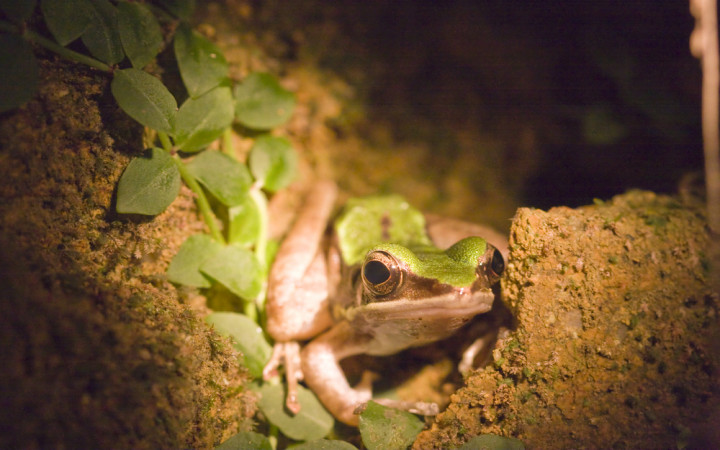Today’s Wonder of the Day was inspired by Anna from IN. Anna Wonders, “What if humans were nocturnal?” Thanks for WONDERing with us, Anna!
If you enjoy the outdoors, one of the best adventures you can go on is a hike. On a hike, you could find a new plant or see an interesting animal. If you’ve gone hiking before, it was most likely during the day. However, many people also like to hike at night.
Why hike at night? Wouldn’t it be difficult to see where you’re going? What if you trip and fall? It may surprise you how well you can see at night. After you’ve been in the dark for a while, your eyes will adjust. You’ll be able to see much better than when you began hiking. Hiking on a starry night or during a Full Moon will also help. They will shed more light on your path.
Speaking of the stars and Moon, that’s another great reason to take a night hike. You can explore the night sky! Looking up, you’ll see all kinds of things you can‘t see during a day hike. You can point out stars and constellations. You’ll also be able to spot the man in the Moon. If you’re lucky, you might even see the Milky Way.
There are other things you might never see unless you hike at night. In the woods at night, there seems to be an entirely new world that’s not around during the day. There are different sounds. There are different smells. And there are a group of animals that only come out at night. We call these animals “nocturnal.” Nocturnal animals sleep during the day and are active only at night. Some common nocturnal animals include bats, great horned owls, badgers, porcupines, beavers, tarantulas, skunks, wombats, raccoons, and hedgehogs.
Nocturnal animals usually have advanced senses of hearing and smell. Some nocturnal animals, such as ferrets and cats, also have eyes that can adapt to both darkness and the bright of day. Animals may be nocturnal for many reasons. Some animals are active at night to make it easier to find food. Others use the night to avoid predators. Still others may prefer the night to avoid the heat of the day.
Human beings rely mainly on their eyes to sense what is around them. Human eyes are made for seeing in color with a lot of light. When you go hiking after the sun goes down, you force your other senses — especially hearing and smell — into high gear when your eyes can no longer deliver the same amount of sensory information to your brain.
Night hiking is probably not in most people’s “comfort zone.” Being in unfamiliar surroundings with little light may make some people nervous or uncomfortable. Taking a hike at night is all about challenging yourself to see things differently, though. If you approach it with an open mind and let your sense of WONDER take over, it can be an experience you won’t soon forget.
When you go to sleep at night, there’s a whole other world that’s just starting to wake up. Night hiking gives you the chance to explore this other world like a foreign land. When you open your mind — and your eyes, ears and nose — to new challenges, you never know what you’ll find!
Standards: NGSS.LS1.A, NGSS.LS1.D, CCRA.R.1, CCRA.R.2., CCRA.R.3, CCRA.R.10, CCRA.W.2, CCRA.W.3, CCRA.SL.1, CCRA.SL.2, CCRA.L.1, CCRA.L.2, CCRA.L.3, CCRA.L.6




